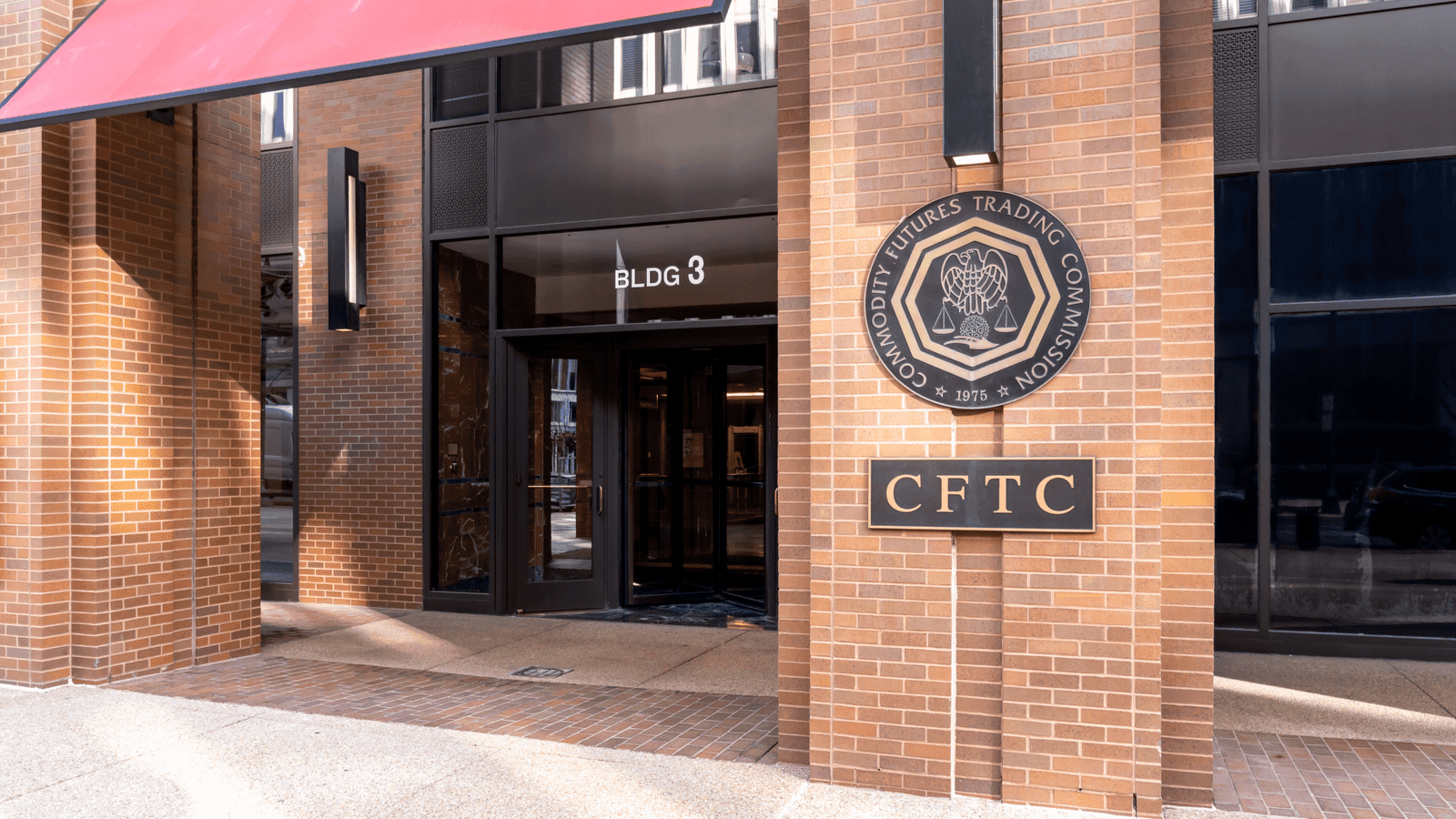FTX Seeks CFTC Approval on Derivatives Proposal
FTX’s plan could change how the derivatives markets operate

Commodity Futures Trading Commission | Source: Shutterstock
- FTX proposes to let individual investors post margins directly instead of going through a broker
- CFTC is currently considering FTX’s proposal and evaluating public comments
Cryptocurrency exchange FTX is looking to get Commodity Futures Trading Commission (CFTC)’s approval to allow individual investors to use derivatives to place leveraged bets on bitcoin, the Wall Street Journal first reported on Wednesday.
The regulators are currently considering the proposal and could make a decision later this year. If approved, it would mean that investors could deal directly with the cryptocurrency exchange led by Sam Bankman-Fried rather than going through a broker, which could fundamentally change the way the derivatives markets infrastructure and operate.
FTX’s proposal has sparked opposition from competitors and Wall Street firms alike. Terrence Duffy, CEO of Chicago Mercantile Exchange (CME), said the move would create “market risk” during a US Congressional hearing in May. The CME offers a bitcoin derivative product that is designed to compete with FTX’s offerings.
In March, the CFTC opened up a public comment request regarding FTX’s proposal for amended derivatives clearing organization registration, and received comments including concerns over customer protection.
Dennis Kelleher, co-founder, president and CEO of non-profit organization Better Markets, wrote in a letter that, during the evaluation, the CFTC must ensure “the protection of customers and market participants — and limiting if not reducing systemic risks — remain the paramount concerns.”
“We believe all investors should have the data, educational tools and a range of financial products available to them so they can make the best decisions possible for themselves,” an FTX spokesperson told Blockworks.
Chris Bae, CEO of digital asset trading firm Enhanced Digital Group, told Blockworks that it is “inevitable” that more sophisticated trading strategies emerge such as the use of derivatives as the crypto market gets more mature.
“We have seen institutional demand for structured products and derivatives being used to better navigate the current market cycle, so it is only natural the retail market will follow,” he said.
“Retail investors’ assets deposited on these platforms should absolutely be senior to equity holders by new or old,” Bankman-Fried said in an interview event at Harvard Business School Club of New York last Thursday, referring to his company’s rescue move to crypto lenders BlockFi and Voyager.
Casey Wagner contributed reporting for this story.
Get the news in your inbox. Explore Blockworks newsletters:
- The Breakdown: Decoding crypto and the markets. Daily.
- 0xResearch: Alpha in your inbox. Think like an analyst.






